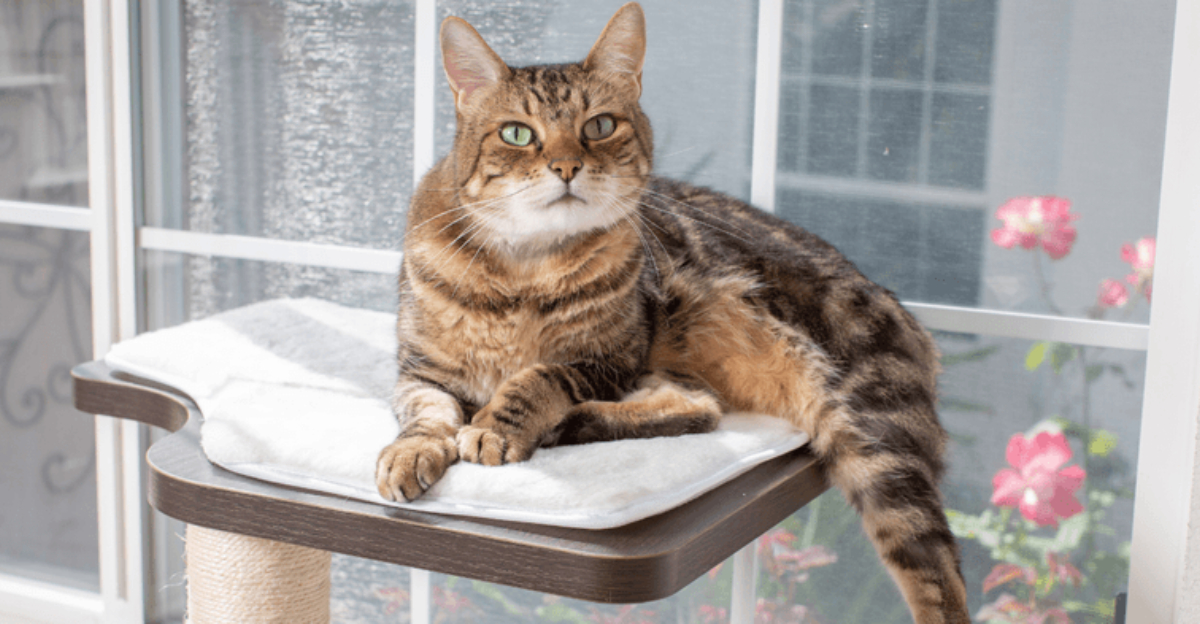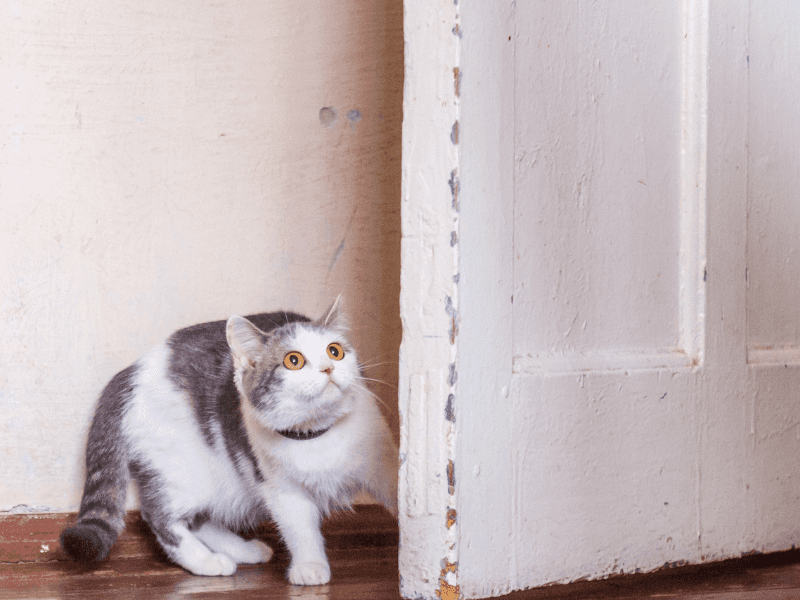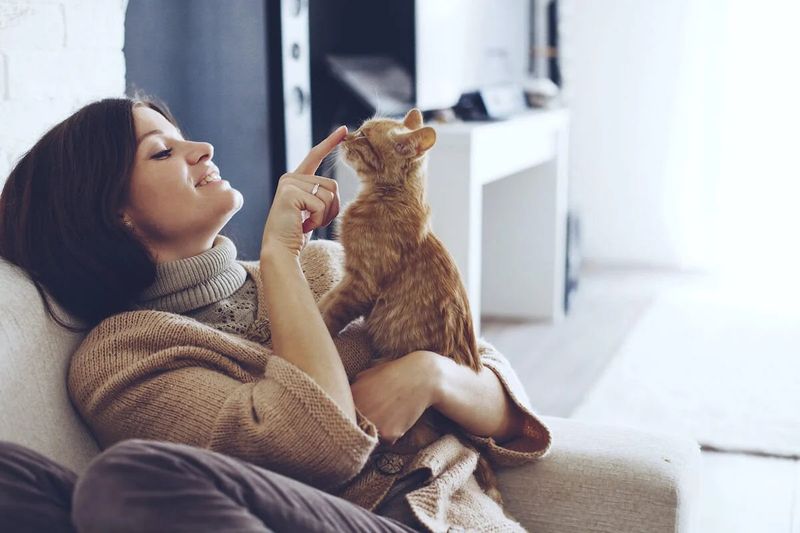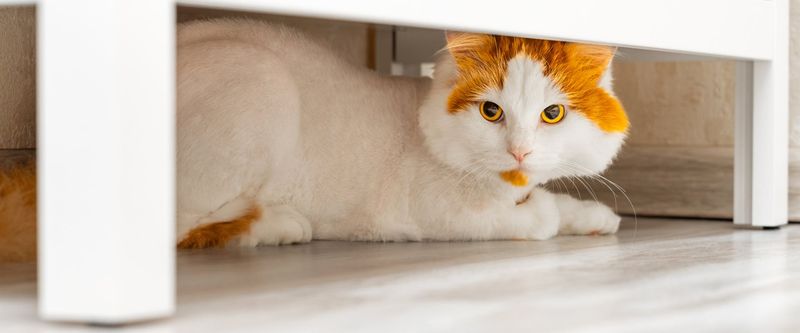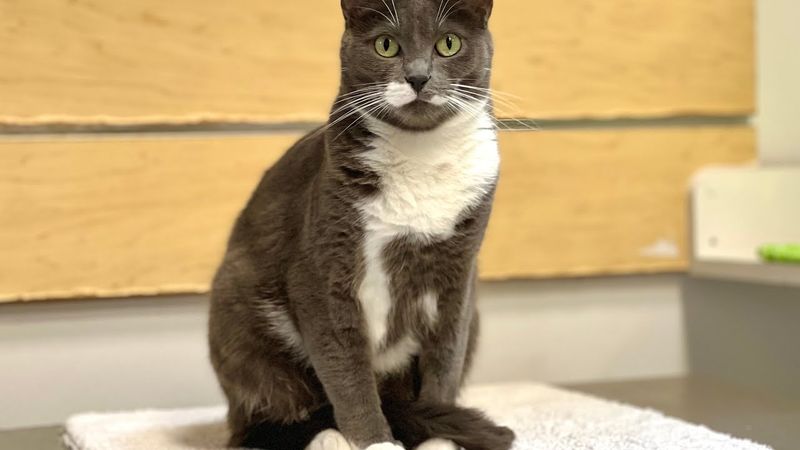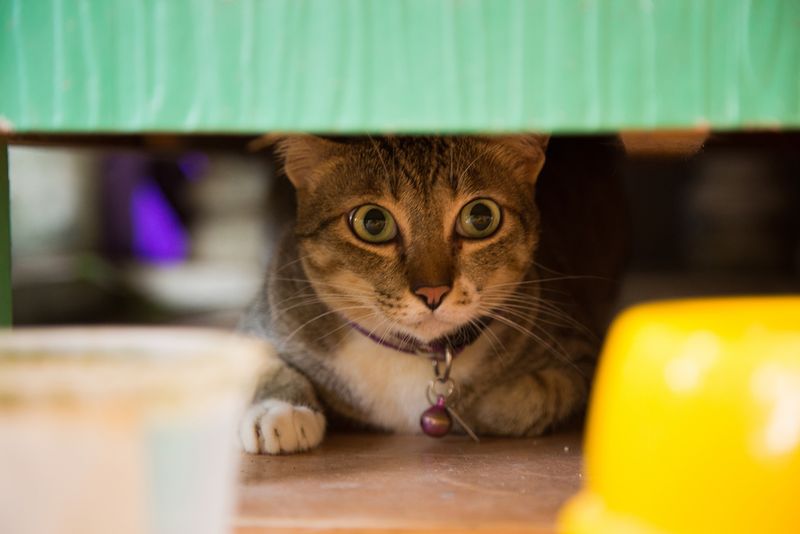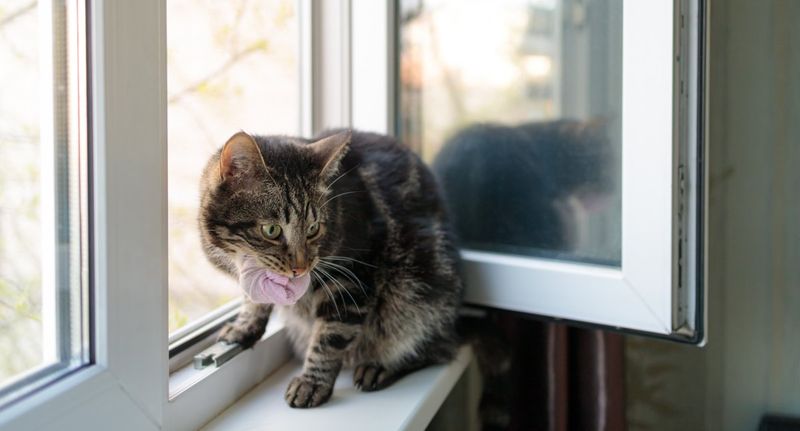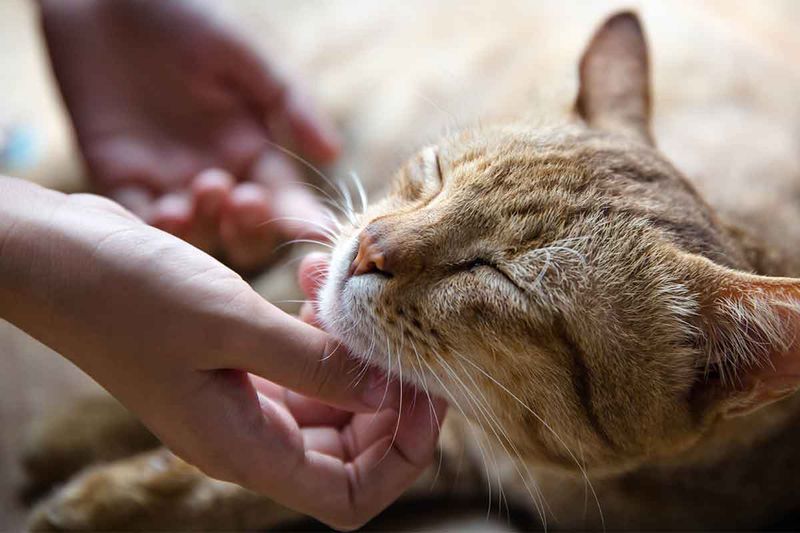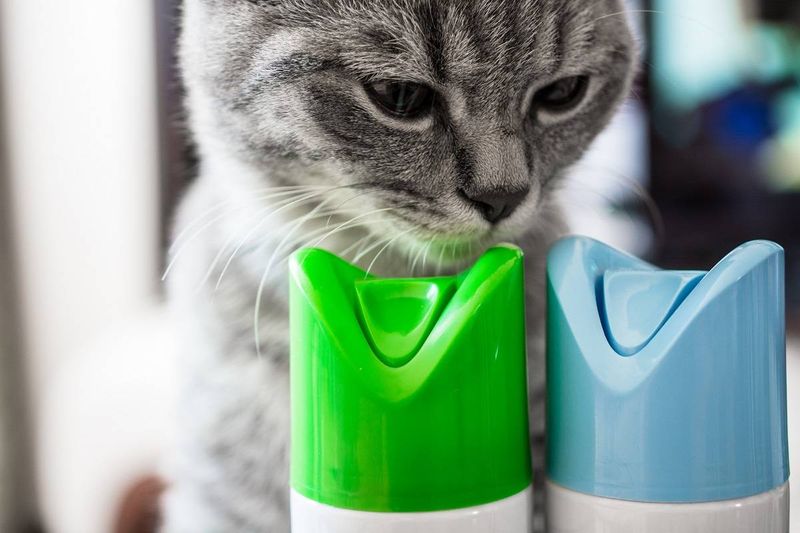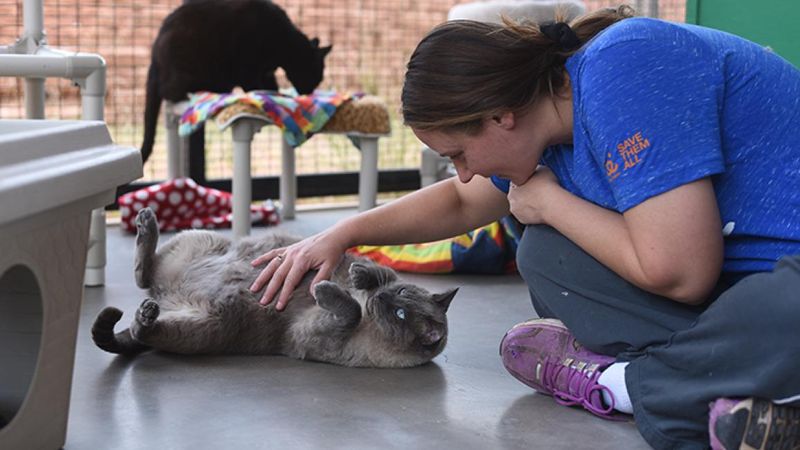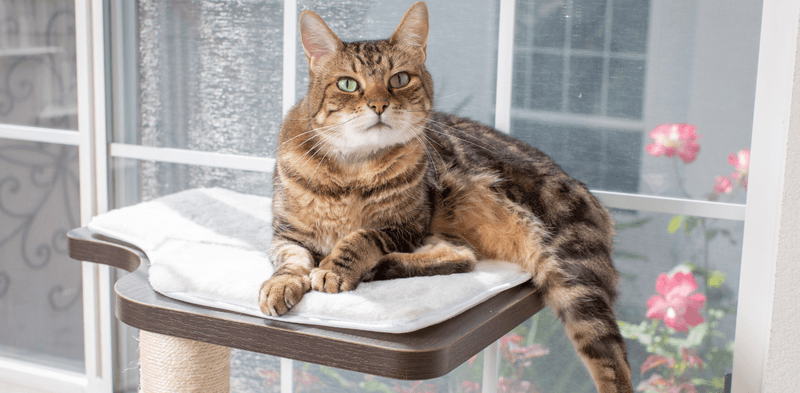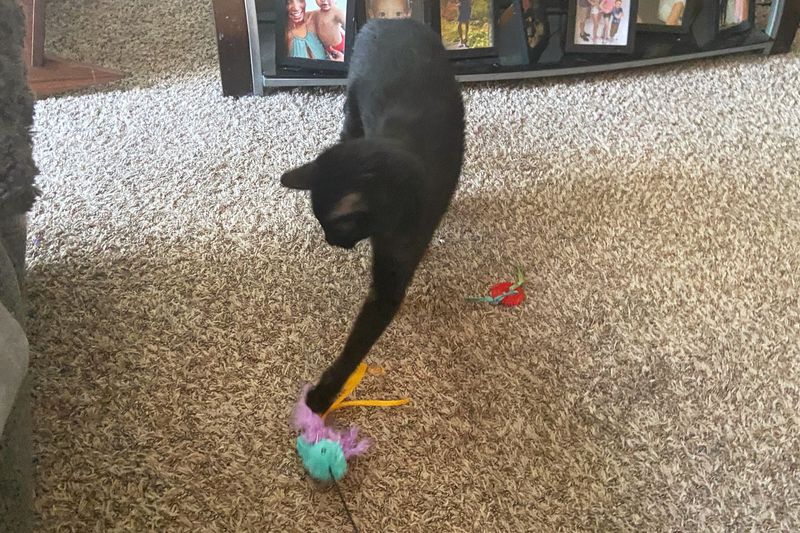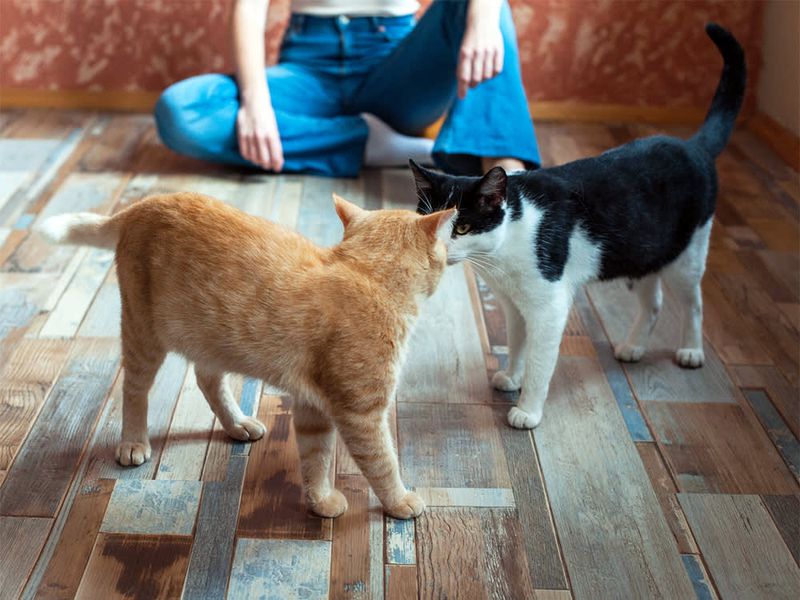📖 Table of Content:
- 1. Avoid Sudden Movements
- 2. Avoid Loud Noises
- 3. Avoid Reaching Over Their Head
- 4. Avoid Staring Directly at Them
- 5. Avoid Crowding Them
- 6. Avoid Trapping or Blocking Exits
- 7. Avoid Picking Them Up Unless Necessary
- 8. Avoid Strong Smells (Perfume, Cleaners, etc.)
- 9. Avoid Overhandling
- 10. Avoid Moving Their Safe Spaces
- 11. Avoid Unpredictable Toys or Lasers
- 12. Avoid Letting Visitors Interact Right Away
Skittish cats can be a mystery wrapped in fur—one minute lounging in a sunbeam, the next bolting under the couch at the sound of a sneeze. This kind of nervous behavior isn’t just quirky; it often signals that your cat is feeling insecure or unsafe in their environment. Understanding what causes your cat to react this way is the first step toward creating a space where they can feel calm and in control.
Many well-meaning cat owners accidentally make things worse by doing things that, while seemingly harmless, feel terrifying to a skittish feline. Unlike dogs, cats process the world around them in a much more heightened and sensitive way, relying on routine, quiet, and subtle body language to feel safe. If you disrupt that rhythm, even unintentionally, your cat may become more fearful over time, not less.
This article highlights 12 things you should avoid if you have a skittish cat. Each action may seem minor, but when stacked together, they can have a significant impact on your pet’s emotional well-being. The key to helping your skittish cat is through consistency, gentleness, and respect for their boundaries. By removing stressors, you’ll slowly build trust and confidence. Below are the key behaviors to steer clear of—and why avoiding them makes all the difference.
1. Avoid Sudden Movements
Quick, jerky actions can send your cat into panic mode. Even a swift reach for your phone or abrupt stand-up from the couch might seem like a predator’s pounce to them. Movement that startles creates an unpredictable environment that makes your cat stay on edge. Instead of relaxing, your cat constantly scans for threats. Repeated surprises like this can train your cat to fear your presence. Try adopting slower, more fluid movements when they’re around. You’ll be surprised how much calmer they become when you start moving at their pace.
2. Avoid Loud Noises
Unexpected noise is one of the most common triggers for a skittish cat. Whether it’s yelling at the TV, dropping a pan, or blasting music, each jolt reinforces their sense of danger. Your cat’s sensitive ears amplify these sounds more than you realize. Over time, this can lead to a constant state of hyper-vigilance. Reducing the volume, especially in shared spaces, creates a more peaceful environment. If something loud is unavoidable, offer your cat a quiet retreat. Respecting their need for silence helps build their trust.
3. Avoid Reaching Over Their Head
To a skittish cat, a hand coming from above feels like a hawk swooping in. It’s instinctual for them to duck or flee from such gestures. Even if you’re reaching to pet them kindly, this move can come across as threatening. Instead, lower your hand and let them sniff you first. When they see your hand coming from below or the side, it’s far less intimidating. You’ll often get more voluntary affection this way. Offering choice rather than control is how you earn a cat’s affection.
4. Avoid Staring Directly at Them
Direct eye contact in the animal world often signals dominance or a challenge. While you might just be admiring your cat, they may interpret it as a threat. Skittish cats are especially sensitive to this and may retreat at even a glance. Try looking slightly away or blinking slowly instead. This nonverbal signal tells them you’re not a threat and are relaxed in their presence. Many cats actually respond by blinking back—a sign of trust. Communication without pressure is the language they understand best.
5. Avoid Crowding Them
Too many people in the room or persistent attention can feel overwhelming. Your cat may be trying to monitor every movement at once, which drains their sense of security. A calm space with fewer distractions helps them build confidence. Don’t push them to stay in a busy area if they choose to leave. Instead, set up a cozy, quiet zone just for them. Encourage guests to ignore your cat unless approached. When they control the interaction, they feel much safer.
6. Avoid Trapping or Blocking Exits
Cats, especially nervous ones, need to feel they can escape danger at all times. Blocking their route—either intentionally or accidentally—can lead to panic. This is often why cornered cats lash out even if they’re typically gentle. Always leave a clear exit path when you’re interacting or entering their space. It reassures them that they’re not stuck or being hunted. Let your cat come to you, and never force a confrontation. Freedom of movement equals peace of mind for a skittish pet.
7. Avoid Picking Them Up Unless Necessary
Being lifted off the ground takes away your cat’s ability to control their surroundings. For a skittish cat, this lack of control is terrifying. Even well-meaning cuddles can be traumatic when unwanted. Instead of forcing physical contact, let your cat choose when they want affection. Sit quietly, hold out a hand, and let them come to you. If they rub against you or jump in your lap, that’s their invitation. Consent-based interaction builds confidence and connection.
8. Avoid Strong Smells (Perfume, Cleaners, etc.)
Overpowering scents can disrupt your cat’s sense of place and security. Products with citrus, ammonia, or strong florals are especially offensive to feline noses. These smells may cause them to avoid certain areas of your home. Opt for unscented or pet-safe products whenever possible. If you’re wearing a new fragrance, give your cat space to adjust. Pay attention to how they respond to environmental changes. Comfort comes from familiarity, and their nose leads the way.
9. Avoid Overhandling
Cats are not stuffed animals—they need space to breathe and move on their terms. Skittish cats, in particular, can become overwhelmed with too much touching. Even gentle petting can become overstimulating after a few seconds. Watch for signs like tail flicks, ears turning back, or sudden flinching. Back off as soon as they show discomfort. Respecting these signals helps build trust and reduces anxiety. Less is often more when it comes to affection with sensitive cats.
10. Avoid Moving Their Safe Spaces
Suddenly shifting a cat’s hiding spot, litter box, or bed can destabilize their entire sense of home. These spaces serve as emotional anchors, especially for the anxious. If you must move something, do it gradually or provide a familiar item like a blanket or toy. Consistency is key to helping them feel secure. Even the smallest environmental change can set back their progress. Think like your cat—would you like your bedroom rearranged daily? Let comfort be your guide.
11. Avoid Unpredictable Toys or Lasers
While play is healthy, certain toys can trigger fear in skittish cats. Rapid movements, flashing lights, or loud noises can be too much to handle. Instead, use slow-moving toys that mimic prey behavior. Let them observe and engage at their own speed. Gentle interaction encourages curiosity without intimidation. Always supervise playtime to monitor their comfort level. The goal is fun, not fear.
12. Avoid Letting Visitors Interact Right Away
New people can be overwhelming for a shy cat. Visitors often make the mistake of calling out, reaching over, or trying to pet right away. Instruct guests to ignore the cat completely at first. This lets the cat approach on their own terms. Keep doors open so they can retreat if needed. A hands-off approach shows respect for their boundaries. In time, your cat may surprise you by greeting guests confidently.
